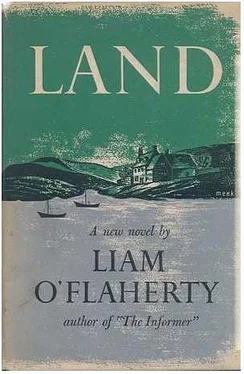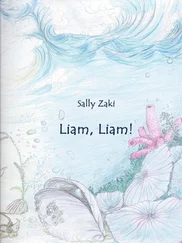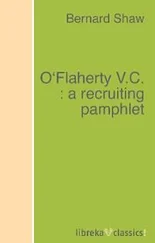Liam O'Flaherty - Land
Здесь есть возможность читать онлайн «Liam O'Flaherty - Land» весь текст электронной книги совершенно бесплатно (целиком полную версию без сокращений). В некоторых случаях можно слушать аудио, скачать через торрент в формате fb2 и присутствует краткое содержание. Город: London, Год выпуска: 2011, ISBN: 2011, Издательство: Bloomsbury Publishing, Жанр: Проза, на английском языке. Описание произведения, (предисловие) а так же отзывы посетителей доступны на портале библиотеки ЛибКат.
- Название:Land
- Автор:
- Издательство:Bloomsbury Publishing
- Жанр:
- Год:2011
- Город:London
- ISBN:9781448203888
- Рейтинг книги:3 / 5. Голосов: 1
-
Избранное:Добавить в избранное
- Отзывы:
-
Ваша оценка:
- 60
- 1
- 2
- 3
- 4
- 5
Land: краткое содержание, описание и аннотация
Предлагаем к чтению аннотацию, описание, краткое содержание или предисловие (зависит от того, что написал сам автор книги «Land»). Если вы не нашли необходимую информацию о книге — напишите в комментариях, мы постараемся отыскать её.
Land — читать онлайн бесплатно полную книгу (весь текст) целиком
Ниже представлен текст книги, разбитый по страницам. Система сохранения места последней прочитанной страницы, позволяет с удобством читать онлайн бесплатно книгу «Land», без необходимости каждый раз заново искать на чём Вы остановились. Поставьте закладку, и сможете в любой момент перейти на страницу, на которой закончили чтение.
Интервал:
Закладка:
Elizabeth waited until he had reached the little wooden gate set in the wall before making a reply.
“Come along, Tim,” she then said.
He entered the garden and approached her at a leisurely pace, swinging his battered hat back and forth, as his heavy boots crunched irregularly against the gravelled path. He was the “labouring man” in whose settle-bed O’Dwyer had hidden. He was fifty-two years old, short and strongly built, with massive thighs, a thick neck, a long upper lip and a wide-based nose. His gentle and intelligent eyes saved his face from looking uncouth.
“It’s about the bullocks, miss,” he said, halting at a distance.
“What about them, Tim?” Elizabeth said.
“Should I drive them to the fair next Wednesday?” he said.
“I’ve told you several times,” Elizabeth said severely, “that you must go to my brother about all such things. He is now master here.”
“I went to him,” Ahearn said. “He only told me to do what I thought best. I don’t know what’s best, so I came to you for advice.”
“That’s different,” Elizabeth said.
“Prices are terrible,” Ahearn said, “since the English threw open their ports to Canadian and American meat. But would they get any better by September? Would it pay to keep the bullocks until the September fair, on the chance that the English might change their laws in the meantime? That’s what is troubling me.”
“I advise you to sell them on Wednesday,” Elizabeth said. “Prices are sure to drop further on account of the political unrest.”
“God spare your health, miss,” Ahearn said. “You’ve taken a load off my mind. I wish it was orders instead of advice you were giving me. A poor working man doesn’t want the responsibility of doing what he thinks best. He likes to get orders and obey them. Ah! For twenty-one years I was a happy man, coming to you for orders. There’s something else I want to talk about, if you can spare the time.”
“I always have time for your problems, Tim,” Elizabeth said.
“It’s about the settle-bed,” cried Ahearn. “I want to go back to it. I’m an unhappy man since the master made Annie Fitzpatrick clean out the attic and put a bed there for me. It’s a fine bed, the one I have now, with linen sheets, a bolster, the best of woollen blankets and even a quilt. Yet I’m suffering up there, miss. Don’t be talking, but every night is a torture for me. I do be hearing queer noises. The fairies keep moving about. They whisper to one another the whole time. Now and again they whistle at me. I’ll die of fright, surely, if I have to stay there much longer. The master thought he was doing me a great favour, when he evicted me from the settle-bed, He wouldn’t believe me when I said that I didn’t want to move. ‘During all these years,’ he said, ‘you’ve been treated like a dog, made to sleep in a filthy box and turned into a drunkard and a slovenly character and a liar through lack of self-respect. You’ve been living in a manner unfit for a human being.’ ‘I’m very comfortable in that old settle-bed, Mr. Raoul,’ I said to him. ‘Dignity,’ said he, ‘is more important than comfort.’ Dignity! Who ever heard the like? There was no use arguing with him. He had an answer for everything, like an attorney in a court of law. I told him the kitchen was a handy place for me to sleep, on account of the way I get hungry at all hours of the night. So it’s a Godsend for me to have the cupboard and the kettle and the fireplace handy. Even a cup of tea, without milk or sugar, together with the heel of a loaf, is a rare treat for a man like me at three o’clock in the morning. ‘You’ve become a glutton as well as a drunkard,’ said he when I mentioned the old appetite. He did, indeed, call me a glutton. May God forgive him for it. ‘Gluttony,’ says he, ‘has always been the mark of the slave.’ Glory be to God, Miss Elizabeth, but sure it’s flying in the face of Divine Providence to call a man a glutton for putting a few stray crumbs of bread between himself and an angry stomach. The master brought back queer notions with him from France. Dignity! We were happy in this house before we heard of dignity and the rights of man.”
“It must be a trial for you, Tim,” Elizabeth said, “being moved in this harsh way from a place that you had made your home and where you had learned to be content. That is no excuse, though, for criticising your master. I’m afraid that God is going to be angry with you on that account.”
“Arrah! God has more sense than that,” Ahearn said. “Sure, I’m only complaining of the fairies. It’s well-known that the fairies are in league with the Devil.”
“Shame on you, Tim,” Elizabeth said, “a grown-up man, believing in something that is contrary to Catholic teaching. Fairies don’t exist. It’s the wind you hear.”
“That’s exactly what the master said,” cried Ahearn with a deep sigh. “He nearly ate the face off me for mentioning the good people. It seems that he’s a deadly enemy of the fairies. He called me a reactionary old fossil, whatever that might mean, for talking about them. Learned people like the master and yourself may be right about most things, but not about the fairies. Poor people know more about things that come out of the dark places. For the love of God, miss, whisper a word to him some evening after supper, when he’s in a good humour, asking him to let me back into the settle-bed again.”
“I’m afraid it would be of no use,” Elizabeth said. “He is very obstinate where his political ideas are concerned.”
“What have politics got to do with me sleeping in the settle-bed?” said Ahearn in astonishment. “Even if they had, sure the best rule in politics is to let well enough alone.”
“I agree with you,” said Elizabeth, “but this is a strange world. The best thing is to submit to God’s will.”
Ahearn sighed deeply and shrugged his shoulders.
“The master says I must learn the value of human dignity or die in the attempt,” he muttered. “Ah! Woe! It’s a terrible prospect.”
He suddenly put both hands over his heart and leaned towards her on tip-toe, with his body rigid and his face glowing with passion. In this pose he resembled a lover, laying siege to his lady’s heart.
“There is no use hiding your head like an ostrich,” he cried with great vehemence. “You must try to make him put an end to his foolishness. I don’t mind him ruining this sixty-five acres of land that are left to him. God knows it’s a little to have left out of a whole barony. It doesn’t matter what happens to this miserable hansel. Let him have his fun with it. He has no right, though, to tamper with the immortal souls of those depending on him. He has no right to make himself the ringleader of paganism in the parish.”
Elizabeth got angry. She herself disapproved of Raoul’s political activities, especially since he had become chairman of the Committee. It was quite another matter, though, to hear him criticised on this account by a servant.
“You should be whipped for such impertinence,” she cried.
Ahearn threw himself on his knees at her feet and stretched out his hands in humble appeal.
“Don’t condemn me, Miss Elizabeth,” he said. “I was only repeating what I hear. There isn’t a disloyal drop of blood in my veins.”
“Get up at once,” Elizabeth said curtly. “I still think you should get a whipping. What is this gossip you heard?”
Ahearn got to his feet slowly and said in a grumbling tone:
“Old Pat Rice, the sacristan, is going about saying that Mr. Raoul is the Antichrist. I took the old devil by the throat and threatened to choke him, but he stood his ground. He gave the authority of Father Costigan for his allegation. Mrs. Callinan, the parish priest’s housekeeper, is even worse. It’s she that called Mr. Raoul the leader of paganism. When I taxed her with being a liar, she tore into me. The old bag of bones, with her skinny face and her buck teeth, she is a good picture of Antichrist herself. ‘Father Cornelius was softening the corns on his poor feet in a basin of luke-warm water,’ she said, ‘when he told me that Mr. Raoul St George was the ringleader of paganism in Manister.’ To cap it all, Julia McNamara has now joined in the hunt. She’s as busy as a ferret in a rabbit burrow, back-biting everybody at the Lodge. Even though it’s well known that she is a little touched in the head, she has influence with the young people, on account of her connections with the Fenians.”
Читать дальшеИнтервал:
Закладка:
Похожие книги на «Land»
Представляем Вашему вниманию похожие книги на «Land» списком для выбора. Мы отобрали схожую по названию и смыслу литературу в надежде предоставить читателям больше вариантов отыскать новые, интересные, ещё непрочитанные произведения.
Обсуждение, отзывы о книге «Land» и просто собственные мнения читателей. Оставьте ваши комментарии, напишите, что Вы думаете о произведении, его смысле или главных героях. Укажите что конкретно понравилось, а что нет, и почему Вы так считаете.












